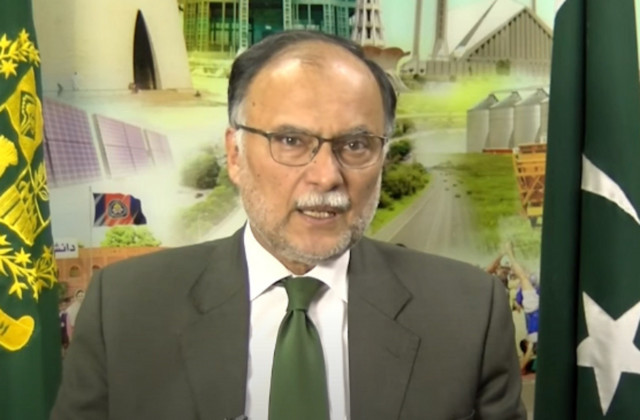BRI projects to be revived: Iqbal
Country seeks JVs in renewable energy and agriculture, relocation of Chinese firms

Federal Minister for Planning, Development and Special Initiatives Ahsan Iqbal said on Tuesday that the government was hopeful about injecting some fresh momentum into projects that fell under China’s Belt and Road Initiative (BRI), as it tried to boost the country’s troubled economy.
“The government is looking forward to forming joint ventures for renewable energy projects, agricultural production and possibly enticing some Chinese companies to relocate to Pakistan,” Iqbal, who also co-heads the committee dealing with the China-Pakistan Economic Corridor (CPEC) project, said in an interview with Bloomberg.
“I’m very hopeful because I was in China recently and had meetings with their senior leadership…so I see great interest on the Chinese side to revive the momentum for CPEC and also to take it into the second phase,” he said.
Pakistan is seen as a flagship destination for BRI projects, with CPEC, which includes a port in the southern town of Gwadar and new power plants, being the crown jewel. Progress on new projects stalled in the aftermath of the Covid-19 pandemic and amid Pakistan’s ongoing economic difficulties that required the International Monetary Fund (IMF)’s intervention.
According to the Bloomberg report, projects worth about $25 billion came online in the first phase, including power plants that ended the chronic electricity deficit. A committee approved a long-delayed railway upgrade project last week.
The project will be done in two phases, “so there is not a big burden on Pakistan,” said Iqbal. The railway, in its first phase, will run from Karachi to Multan, a little over halfway to the capital, Islamabad.
The government has also finished some key BRI projects that were pending for years: a water-supply project in Gwadar, dredging work at the port and an electricity transmission line from Iran.
“So all these things really help China see that the new government is serious and it restored their confidence that now Pakistan is serious about CPEC initiatives,” said Iqbal.
To mark the 10th anniversary of CPEC last year, China’s Vice Premier He Lifeng unveiled five new corridors including the one focused on growth to boost economic activity in Pakistan.
One change in the second phase would likely involve Islamabad taking a step back while urging the private sector to forge partnerships with Chinese firms.
The other big focus, albeit a long-shot prospect, is to try and attract Chinese firms thinking of relocating from China amid rising labour costs and heightening geopolitical tensions.
Published in The Express Tribune, May 29th, 2024.
Like Business on Facebook, follow @TribuneBiz on Twitter to stay informed and join in the conversation.



















COMMENTS
Comments are moderated and generally will be posted if they are on-topic and not abusive.
For more information, please see our Comments FAQ